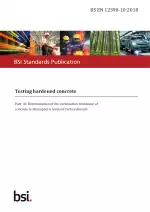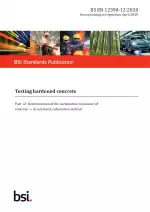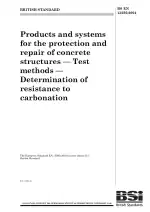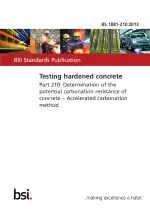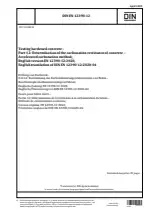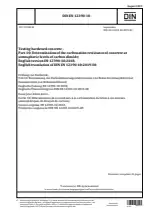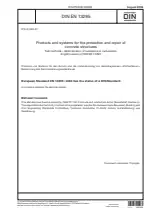BS EN 12390-10:2018 PDF Download
Standard EN SampleTesting Hardened Concrete: Determination of the Carbonation Resistance of Concrete at Atmospheric Levels of Carbon Dioxide
Also Known As:
BS EN 12390-10:2018 standard specifies the method for determining the carbonation rate of a concrete sample. The carbonation rate is expressed in terms of millimeters per year (mm/va) and indicates the rate at which carbon dioxide from the atmosphere penetrates and reacts with the concrete's alkaline constituents, leading to a decrease in pH and potential degradation of the material.
The standard outlines two procedures for conducting the test. The first procedure involves using a standardized climate-controlled chamber, where the concrete specimens are exposed to a controlled environment with atmospheric levels of carbon dioxide. The second procedure involves placing the specimens on a natural exposure site, protected from direct rainfall. The standardized climate-controlled chamber procedure is considered the reference method.
It is important to note that these procedures are intended for initial testing of concrete and are not suitable for factory production control. This standard provides guidance on evaluating the carbonation resistance of concrete for applications where carbonation is a concern, such as in structures exposed to high levels of carbon dioxide, such as parking garages or industrial buildings.
| Descriptors | Test specimens, Specimen preparation, Cement and concrete technology, Chemical analysis and testing, Concretes, Carbon dioxide, Corrosion tests, Carbonation |
| ICS Codes | 91.100.30 - Concrete and concrete products |
| Language(s) | English |
| ISBN | 978 0 580 96469 5 |
| File Size | 839.7 KB |

